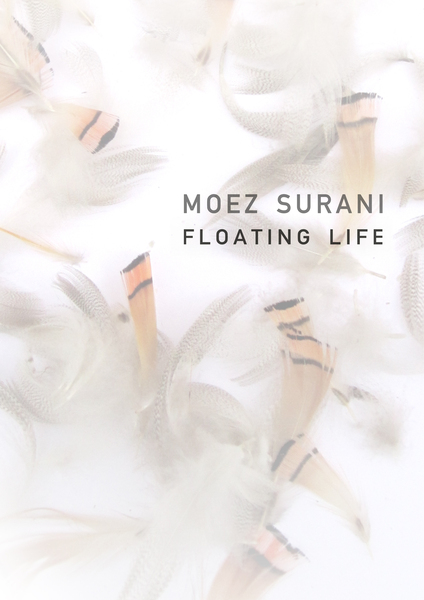Moez Surani. Floating Life. Hamilton, Ontario: Wolsak and Wynn, 2012.
~ reviewed by Lise Gaston
An epigraph by the Japanese writer and Buddhist priest Asai Ryōi opens Floating Life: “Living only for the moment, turning our attention to the pleasures of the moon, the snow, the cherry blossoms and the maples… and diverting ourselves in just floating.” Moez Surani’s second collection aims for such moments of imagistic detail—but with the recognition that not all is pleasure and diversion. Rather, these sparse, moving poems are buoyed on undercurrents of loss and meditations, in which love and its physical manifestations are tenuous, ever-shifting, as vibrant yet as insubstantial as light. A generous amount of space between lines and stanzas magnifies the thematic concern with impermanence, as images indeed float, rootless, over the page. The transitory nature of relationships is beautifully portrayed in poems such as “Bildungsroman”: “Floundering in the moonlight / with my key and the door. // I could / dismantle you.” Romantic moonlight is pushed into life’s practical fumbling for lock and key, while the speaker’s own dismantling is enacted through lines that enjamb suddenly, then drift off in ellipses: “Chasing you over snowy continents, my mind / boomeranging between tenses…” Many final lines in individual poems construct simple and unsentimental poetic turns that carry the weight of the pieces behind them, gathering emotion into the space that proceeds: “It is / the end of August. // And my floor / is suddenly cold” (“Morning Tea in my Kitchen”). The book’s two long poems, as well as many short ones, showcase the transience of a travelling life. These would-be travel pieces inhabit many different locales, but there is no pinpointing a given speaker’s home, and the poems are often less about specific places than the movement between them: on night trains, buses, in and out of relationships—everywhere, someone is coming or has just gone. People “flung apart” in space and time are reconnected by moments of detail: “movie and single beer that / travelling the couch / joins our mouths” (II). Always the implication of impermanence belies any vision of romantic immutability: “We are perhaps / each dispensable to the other.” Surani’s direct, concrete language, exposed in controlled yet fluid lines, ensures a consistently strong voice, with passion that is muted and cool: “If I become water / you could be portions of Indonesia. I would / climb you without patience or calm” (II). And through all this floats the stunning, simple image. In “Benares,” the speaker watches an Englishman “going / red-penned through a list of human qualities;” after a swath of blank space, a mosquito draws the speaker’s blood, and one image murmurs to the other across the page with the light touch of a water strider, the brief ripples from its legs calling up the presence of a deep and complicated pond.
Lise Gaston’s poetry, essays, and reviews have appeared in journals across Canada, most recently The Fiddlehead and Matrix Magazine. She lives in Montreal.
Pleasure and diversion, loss and meditation, can all be found in Arc!


